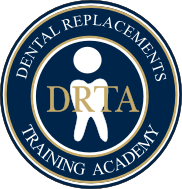Dental assisting is a crucial part of the dental healthcare team, providing support to dentists in their daily operations and patient care. In Texas, the state has set certain requirements for individuals who want to become licensed dental assistants. This article will discuss the education, training, and licensing requirements for dental assistants in Texas, as well as the skills and knowledge needed to succeed in this profession.
Education Requirements
High School Diploma or Equivalent
Obtaining a high school diploma or its equivalent, like a GED (General Educational Development) certificate, serves as the foundational step towards becoming a dental assistant in Texas. A strong foundation in science courses such as biology and chemistry can significantly benefit aspiring dental assistants.
Accredited Dental Assistant Programs
Enrolling in a state-approved and accredited dental assistant program is pivotal. Texas boasts several institutions offering these programs, which typically result in a certificate or diploma upon completion. These programs cover essential topics including dental anatomy, radiology, chairside assisting, and more.
Training Requirements:
Dental assisting programs in Texas provide students with a comprehensive education in all aspects of the profession. This includes instruction in patient care, radiography techniques, anatomy and physiology of the mouth, instrumentation techniques, preventive dentistry, and office administration. In addition to these core topics, some programs may also offer certifications in Coronal Polishing, Radiology Health & Safety, or Sealant Certification. These certifications demonstrate a higher level of expertise and can increase job opportunities for graduates.
Clinical Experience
Hands-on training through clinical experience is crucial for aspiring dental assistants. Many accredited programs in Texas incorporate clinical internships or externships, allowing students to gain practical experience in real dental settings. These opportunities provide invaluable insights and skill development in patient care, sterilization techniques, and chairside assistance.
Certification
While Texas does not mandate formal certification for dental assistants, obtaining certification through the Dental Assisting National Board (DANB) can significantly enhance career prospects. DANB certification demonstrates a commitment to professionalism and competence in the field.
Licensing Requirements:
Once a dental assisting program has been completed, individuals must pass both written and practical exams to obtain a license as a dental assistant in Texas. These exams are administered by either the Texas State Board of Dental Examiners or the Dental Assisting National Board (DANB). With a license in hand, Registered Dental Assistant (RDA)can practice in the state and provide quality care to patients. It is important to note that licenses must be renewed every two years through continuing education courses approved by either the Texas Department of Licensing and Regulation (TDLR) or DANB.
Read More: Types of Dental Assistant Certification
Radiography Certification
In Texas, dental assistants are required to obtain a radiography certificate to perform certain tasks related to dental X-rays. This certification ensures that individuals understand the safety measures and protocols necessary when handling radiographic equipment.
Nitrous Oxide Monitoring Certification
For dental assistants administering nitrous oxide, Texas mandates a separate certification. This certification involves specialized training in monitoring and managing nitrous oxide sedation during dental procedures.
Demonstration of Professional Competency:
In addition to meeting the education and licensing requirements, individuals must also demonstrate professional competency. This includes strong interpersonal skills, knowledge of professional ethics, and proficiency in performing chairside assistance. Dental assistants must be able to communicate effectively with patients and other staff members, maintain a high level of confidentiality, and perform tasks efficiently and with good judgment. These skills and abilities are crucial for providing excellent patient care and maintaining a positive reputation for dental practice.
Maintaining Licensure and Continuing Education
Renewal and Continuing Education
Licensure renewal for dental assistants in Texas typically occurs biennially and requires completion of continuing education credits. These educational endeavors ensure that professionals stay updated with the latest advancements, techniques, and safety protocols in dental care.
Continuing Education Opportunities
Numerous avenues exist for dental assistants to pursue continuing education, including workshops, seminars, online courses, and conferences. Staying informed about emerging trends and technologies is crucial for providing high-quality patient care.
Career Opportunities for Dental Assistants in Texas:
With a license as a dental assistant in Texas, individuals have many career opportunities available to them. Dental assistants can work in private dental practices, dental clinics, or even in public health organizations. They can also specialize in areas such as orthodontics, oral surgery, or pediatrics. As the demand for dental care continues to grow, the demand for licensed dental assistants will also increase, offering a stable and rewarding career path.
Becoming a licensed dental assistant in Texas requires meeting certain education, training, and licensing requirements. These requirements ensure that dental assistants have the knowledge and skills needed to provide quality patient care. With a license in hand, individuals can pursue a rewarding career in the dental field, with opportunities for growth and specialization. By meeting the requirements and demonstrating professional competency, dental assistants can make a valuable contribution to the dental healthcare team and help improve the oral health of patients in Texas.
